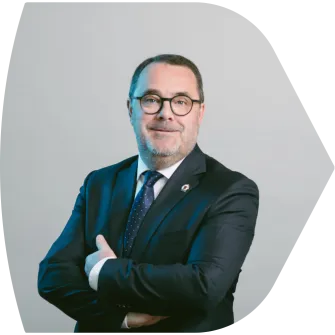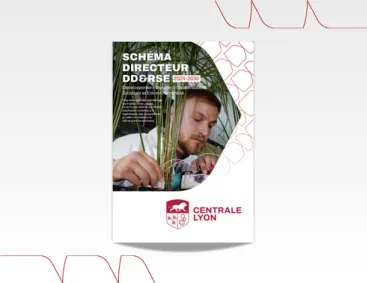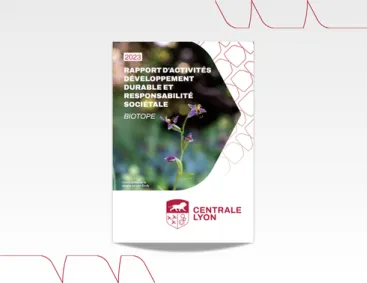![]()
I believe that another model is possible, based on a regenerative economy that respects living organisms, the contours of which we must collectively define.
Faced with the magnitude of the issues at stake, we obviously need to question our internal operations, but also our role, our values and our raison d'être: we need to rethink the engineering model we wish to convey in our research, pass on to our students and promote in our ecosystem.
This reflection on the engineering we wish to promote must be carried out with humility in the face of the complexity of the task, and with ambition in the face of the urgency to act.Pascal Ray
Director, Centrale Lyon
Regenerative engineering
Centrale Lyon promotes engineering that questions purposes and uses, does not undermine planetary limits, encourages the regeneration of ecosystems and promotes cohesion within and between territories.
In close collaboration with its academic partners, Centrale Lyon aims to become a resource center for research and training on regenerative engineering that companies and public players can draw on to accelerate their transitions.
To achieve this, Centrale Lyon relies on:
- A strategy, organization and dedicated budget to strengthen and steer the integration of major transitions into all actions.
- A research team, experimental platforms, a sustainable innovation support method and a Think&Do Tank to conduct research on the concept of regenerative engineering, provide solutions to meet the challenges of major transitions and disseminate the results within the Centrale Lyon ecosystem.
- A pedagogy for initial and continuing training based on the hybridization of knowledge and the development of skills that enable complex problems to be solved with a systemic approach, essential for thinking about tomorrow's world.
- Exemplary campuses, sober, resource-efficient, producing their own energy, reducing waste and negative impacts on biodiversity as much as possible, and favoring short and circular circuits.
- Awareness-raising, training and support for all staff on major transitions.


